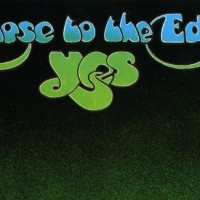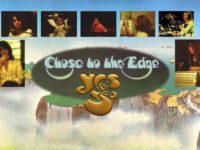“Siberian Khatru,” the closing song from 1972’s Close to the Edge, has earned a unique place in the Yes cannon. It is often the go-to concert opener, and is among the most played and anticipated selections from the world’s greatest progressive rock band.
Like its album mates, the song can hardly be called your typical rock fare. Jon Anderson’s lyrics are as oblique as they are obtuse. Unlike the title track to Close to the Edge, Anderson sings a melodic and perfectly synced vocal. However, Anderson does tie in even more mystical elements. What is Anderson singing about? It doubtful even he knew, but the words flow perfectly with the melody provided by cowriters Steve Howe and Rick Wakeman.
Howe employs a number of effective guitar textures. His Gibson 335 sound kicks off with a clean, direct and precise theme. Howe then leads the rhythm section through a direct dance, which is quickly followed by Rick Wakeman’s string-like mellotron. The fray is driven by a deceptively simple Bill Bruford backbeat. Don’t be fooled: Bruford serves up the polyrhythms with the best of them.
After the adventurous intro, Yes’ time signature gets a little more conventional. Both Howe and Wakeman get to shine in a variety of ways. Howe seamlessly moves from his Gibson to his Fender pedal steel and back, providing a brief and almost other-worldly solo while Wakeman utilizes his harpsichord with equal dexterity. The interplay between the two on “Siberian Khatru” is a highlight of the album. Not to be outdone, Bill Bruford and Chris Squire’s interplay reaches even greater heights.
With a recapitulation of the main theme, Jon Anderson brings everything back into focus — only to be launched again by Rick Wakeman’s mellotron. Just when you think it will all come crashing down, Anderson quickly and forcefully concludes the proceedings in concert with the rest of the band.
Yes’ “Siberian Khatru” is all the more amazing since this song, like the preceding two, was painstakingly put together by the band with little arranging done before the recording sessions. The process was too convoluted for drummer Bruford who, after the recording sessions, left for his a long stint with King Crimson. Ironically, Bill Bruford would never have the pleasure of playing these songs with Yes’ official; lineup until the Union tour.
Onward to Alan White, now the longest-tenured member of Yes with Squire’s sad passing, and the album Tales from Topographic Oceans.
- Nosotros, “Mentiras” (2024): One Track Mind - April 10, 2024
- Nick Finzer, Christian Fabian, Rachel Z + Others: Five for the Road - April 5, 2024
- Terry Blade on ‘Ethos: Son of a Sharecropper’: Something Else! Interview - March 10, 2024




